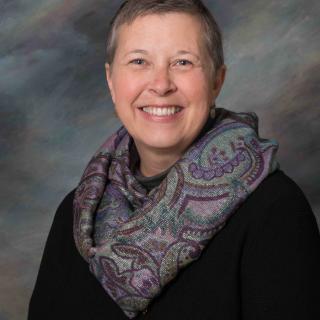
When Erika Christakis was a little girl, it was standard practice to keep kids outside all day until dinner. That kind of unfettered play, however, isn’t exactly the norm of today.
A licensed preschool director, Harvard University graduate and early childhood educator at the Yale Child Study Center, Christakis discusses the importance of play and preschool in her new book, The Importance of Being Little: What Preschoolers Really Need From Grownup. Here’s what she had to say about the book, her work and childhood education.
Do you think that educational standards have failed to take into account child development markers for students?
Many educators are really concerned about the lack of developmentally appropriate practices in the Common Core standards for kindergarten, which have trickle-down effects on our expectations for preschoolers.
Most concerning to me is the increase in 'seat work' or table work, where preschoolers are asked to complete work sheets and other tasks better suited to older children. Studies continue to show the wisdom of supporting children’s learning through hands-on exploration and the give-and-take of human interaction.
Isn’t one of the biggest issues with preschool (lack of adequate teacher salary, training and requirements) also the biggest problem to fix?
It is not easy to solve our troika of preschool challenges: access, affordability and quality. There is much that we don’t know about preschool quality, including the exact dosage and programming that will ensure the best outcomes. We do know, however, that preschool quality is very sensitive to teacher salaries.
Since relationships are so central to healthy child development, I think we will see positive improvements by strengthening the key relationships affecting young kids, including the teacher-child relationship and the relationships between teachers themselves. We should consider more flexible approaches to teacher-child ratios and staffing patterns and even the things teachers do in the classroom so that we can achieve a higher level of quality without sacrificing access and affordability.
What are your thoughts on Seattle’s plans for universal preschool?
Most industrialized societies support early education to a greater extent than in the United States; I don’t see how we can remain a top economic power without solving our childcare crisis. But universal preschool is not the panacea we think it is. Many decent people and early childhood educators disagree about the pros and cons of universal vs. targeted preschool.
While some kids simply don’t need preschool whereas others critically depend on it, the evidence is clear that it’s only high-quality preschool with a preschool pedagogy that is playful, exploratory and relationship-based that makes a real difference.
Play and learning are often seen as mutually exclusive but your book illustrates them as intricately attached. How did we change that?
The false dichotomy between play and learning has been very damaging to young children. It comes from an increasing but misplaced anxiety about our children’s future, and a longstanding cultural suspicion that what’s good for children shouldn’t be enjoyable.
It’s also hard to measure the learning benefits of play because children’s playful habitat has been eroded and undermined through everything from excess screen time to smaller family size to high-stakes testing environments in schools.

How has the habitat of play been eroded?
Play is a behavior which requires a healthy habitat to thrive. Unfortunately, the physical and emotional space in which to be a child has been chipped away by misguided adult actions, such as reducing play time in school or micro-managing kids’ time outside school or restricted access to materials, such as toys that invite fantasy and problem-solving. The habitat can be despoiled from simple inattention to how young children approach the world.
Playful learning doesn’t just magically unfold. Productive play requires careful cultivation and commitment from adults. I believe that when we repair the play habitat, the cognitive, emotional and physical benefits of play will become more obvious to adults.
If habitat prizes dialogue, talking and listening skills, how do we create it in the face of excessive technology use?
We have to get back to some basics: offer children open-ended materials that invite lots of different uses, rather than toys that are designed for one purpose. Ask open-ended questions such as 'Tell me about your drawing.' Give children long uninterrupted stretches of time to play and explore and to solve conflicts and problems while being willing to tolerate boredom and discomfort.
All of this starts with good observation. Every teacher can start by asking 'Can we find evidence of her thinking, her experience, her ways of being?' Parents need to ask: 'What is my child doing? What is my child thinking and seeing?'
As many as 40 percent of our schools have cut recess. Has it become an exclusively preschool activity?
I think there is a generalized misunderstanding of the cognitive and other benefits of play. Play, especially outdoor recess, is often viewed as a vehicle for releasing energy, rather than as an essential cognitive and emotional fuel.
Similarly, social play is strongly linked to self-regulation, resilience and other key social skills that make kids smarter and more capable in the later years. In the short term, play can sometimes appear to cut into academic learning. So it’s important not to miss the forest for the trees. We should be willing to tolerate fewer checkmarks on a score card in kindergarten in exchange for much greater achievement later in subsequent years.
Good parenting requires us to tolerate and even embrace childhood challenges such as being bored or struggling to get along with others.
How much, if at all, have parents contributed to the loss of childhood?
While parents have been blamed for helicopter parenting, the story is much more complex. I often hear from parents who would love nothing more than to give their children a more 'free-range' experience, but they find that other people’s children are not available because they are off at lessons or kept indoors.
Young children themselves have also lost some of their play mojo, through lack of exposure to rich play habitats, so parents can be forgiven for not prioritizing unstructured play when their children seem confused and bored by it.
I believe that parents need to acquaint themselves with the literature on play and the value of family time and closer relationships.
You've said that overscheduling kids is a direct result of parents not having faith in their children, but isn’t it possible that parents also don't have faith in themselves?
I really feel for 21st century parents because they are bombarded with constant messaging about what they can do better and how their children measure up to others. This is not a recipe for self-confidence!
The other threat to parents’ faith in themselves and their children comes from our very human discomfort with emotional disorder. In childrearing, most people find it hard to tolerate empty or negative space, preferring to fill it with a heavy dose of structured activities that keep the messy emotions and behaviors under wraps.
When society is telling parents that this overscheduling can make their kids smarter or more successful, is it any surprise that few can push back against the frenetic over-parenting culture? But good parenting requires us to tolerate and even embrace childhood challenges such as being bored or struggling to get along with others, or learning what kids are good at and what they need to work harder on. In writing my book, I wanted to help parents reclaim some of their shaken confidence that they are, truly, their child’s best teacher.











